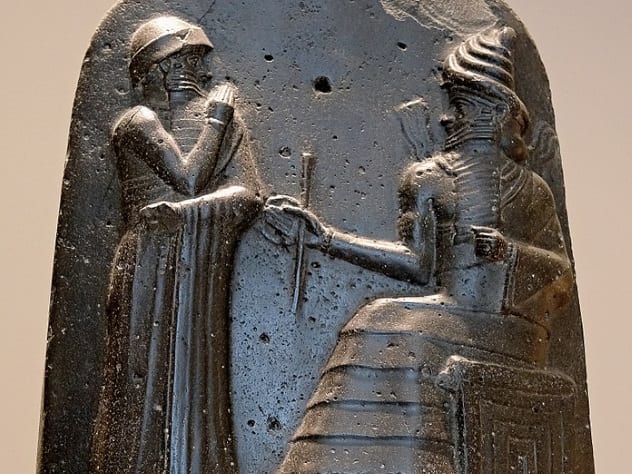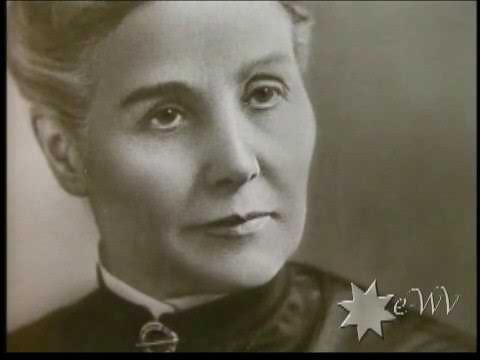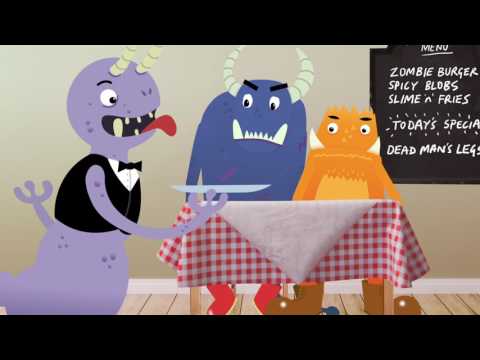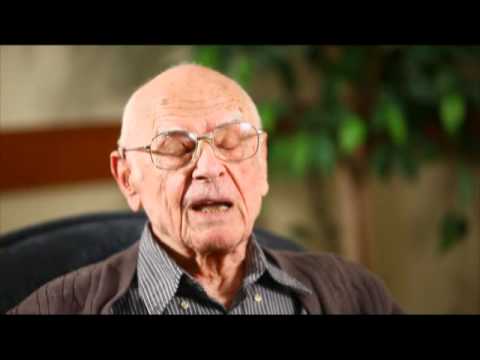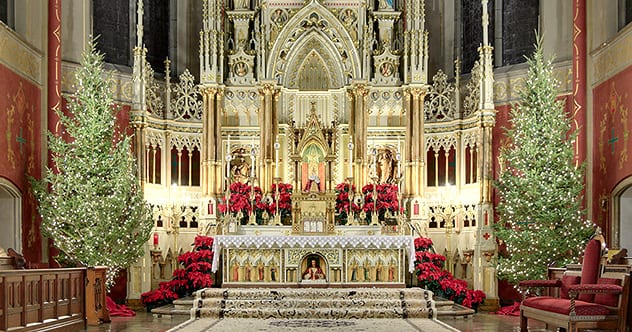10 Good Dads Who Changed The World
10 BC Festivities
Archaeologists have found a clay tablet in the ancient ruins of Babylon which a boy named Elmesu once carved words onto, honoring his father and wishing him good health and longevity. Not only does it’s presence suggest a festival exalting fathers, it’s resemblance to the concept of the modern-day greeting card is astounding, especially when you take into consideration that this relic is about 4000 years old! The ancient Babylonians built the Hanging Gardens, developed trigonometry and pioneered many astronomical concepts we still use today, and quite possibly they were very early innovators of the celebration we call Father’s Day. And throughout Europe ancient pagan ceremonies were held in honor of the sun which they revered as a paternal entity. Modern-day pagans often link our current Father’s Day to those ceremonies, crediting the close calendrical proximity between the dates of the observance in America and the date of the summer solstice, both falling toward the start of the third week of June, as being evidence of this. But while there may be similarities in sentiment between the two festivals, we’ll see further along that the official date of Father’s Day had an alternate origin.
9 Fathers, Forefathers, and Patriarchs
Christianity swept across Europe and North Africa in the first centuries AD leading up to the Early Middle Ages, and many local customs and pagan celebrations were incorporated into church holidays, including the concept of honoring fathers. The Coptic Orthodox Church, based in Egypt, was paying homage to fatherhood each year in July on St. Joseph’s Day as early as the fifth century, and the Roman Catholic Church has been officially observing the Feast of St. Joseph on March 19 since 1508, though they’d been celebrating it unofficially about a hundred years prior to that. The observance is inspired by Joseph, the carpenter who married the Virgin Mary, and honors his examples as the stepfather of Jesus to influence contemporary fathers. Similarly, Eastern Orthodox churches have traditionally celebrated the Sunday of the Holy Forefathers the second Sunday before Christmas. The observance honors biblical leaders and patriarchs, including the patrilineage starting with Adam, descending through Noah, Abraham and Moses, and ending with St. Joseph and the Nativity. These church holidays continue to this day, although actual participation varies from country to country.
8 Birth of an American Tradition
St. Joseph’s Day, being a Church holiday, was never really celebrated in the United States. The US would come to develop a secular holiday for dads, however, and this came about due to the activism of a handful of women more than a hundred years ago. And it all started, oddly enough, with Mother’s Day… During the 1860’s, a post-Civil War activist named Ann Reeves Jarvis initiated “Mother’s Work Days”, a celebration that reconciled moms of both Union and Confederate soldiers in a fractured West Virginia community. Her daughter, Anna Jarvis, in her mother’s honor took up the cause to create a national holiday with similar sentiment, and in 1908 a Philadelphia department store followed her lead by holding the first commercial Mother’s Day event, a marketing campaign that spread quickly amongst retailers like wildfire! The popularity of the observance skyrocketed to the point six years later in 1914 President Woodrow Wilson made Mother’s Day a national holiday celebrated on the second Sunday of May, leaving the door of public opinion open a crack for pondering the possibility of an official day for dads. The notion of Father’s Day also began in West Virginia. Grace Golden Clayton, a minister’s daughter, was responsible for a church service honoring fathers held in the town of Fairmont on July 5th, 1908, just a few months after 362 men died in a catastrophic mine explosion. This commemoration was just a local observance and was not meant to be an annual event, but it laid a path that others would follow. One year later, clear across the country in Spokane, Washington, an ambitious woman by the name of Sonora Smart Dodd piloted a campaign to create a “Fathers’ Day” much like the Mother’s Day celebration sweeping the country. Dodd proposed June 5, her father’s birthday, as the date for this new holiday, and she pitched her campaign to local businesses, churches and government officials. In 1910 Washington became the first state to have an official Father’s Day, moving the date forward to the third Sunday of June to distance it a bit from Mother’s Day which was held in May. It’s quite a testament to the perseverance of these women, not yet granted the right to vote, that Father’s Day came about, especially as public acceptance of the holiday across the country was slow and dispassionate. And men, for the most part, seemed hesitant to embrace it…
7 A Congressional Spellcheck
Father’s Day gets misspelled often, if apostrophe misuse can be considered a misspelling. Many people leave out the apostrophe, making the word “father” plural, or they incorrectly place the apostrophe after the “s”, making the word plural possessive. And while most people probably couldn’t care one way or the other, the lawmakers who (unsuccessfully) introduced a bill in Congress seeking national observance of the holiday for the first time in 1913 decided that the apostrophe should be placed before the “s”. Not only did this correspond with the spelling of Mother’s Day, but by making the word “father” singular it captured the spirit of the proposed holiday’s sponsor, Sonora Smart Dodd, who was campaigning her cause to celebrate individual fathers and their impact on their families. It also corrected Dodd, who had been officially misspelling the word herself, or at least committing an act of apostrophe misuse, by placing the little bugger after the “s”. …oops…
6 Real Men Don’t Need Holidays
As mentioned earlier, Mother’s Day was made a national holiday just a year later in 1914. From the very start the general public embraced it, and soon it was being commercially promoted with lavish, feminine gift suggestions such as flowers, fancy hats, and jewelry. Word began to spread about the possibility of a similar holiday to honor male parents, but most men across the country were either indifferent or outright averse to the very notion! And it wasn’t just the fact that advocates were promoting the holiday along the lines of that sales-oriented, effeminate day for moms—oh no, it went a lot further than that! To fully understand such disgruntlement you have to take a good look at the structure of the American family in the first half of the twentieth century. Men ruled the roost in that age! They were usually the sole financial supporter of the household, and the last thing they needed was family members buying them needless gifts for a holiday they found unnecessary, time-consuming, and costly to their own pockets. They scoffed at the notion that they deserved a day of pampering, for surely it was the little ladies that merited such infantile coddling! Men were also suspicious of the intent behind the observance, accusing it of being nothing more than another commercial gimmick, and to boot the day had already been designated a Sunday holiday, so there wasn’t even a day off from work involved to sweeten the pot! But then the Great Depression hit America, and when consumer spending slowed retail stores tried every pitch and angle they could to make a sale, including the concept of Father’s Day. And a decade later, when men went overseas to fight in World War Two, the holiday often was a sentimental day of honor and remembrance for the families left behind. When they returned the country was a different place, and doors of opportunity had opened for women that had been previously closed. And while women were no longer homebound, in turn men found themselves with more leisure time which they could spend with their families, deepening paternal roles and bonds with their children which helped justify the holiday. Little by little the concept of Father’s Day became ingrained within the extended community of the American male.
5 Oval Office Buck-Passing
The man who originally inspired Father’s Day, William Jackson Smart (father of Sonora Smart Dodd) died in 1919. More than fifty years would pass before his daughter’s tribute to him, and to other fathers, would become a national holiday. And despite ongoing advocacy in favor of it during this period of time, lawmakers in Washington remained reluctant… One of the reasons that the 1913 bill failed in Congress was because they were afraid the holiday would become commercialized. Regardless, both Woodrow Wilson in 1916 and Calvin Coolidge in 1924 recommended a national observance, but neither one actually issued a presidential proclamation making it so. In 1957 Sen. Margaret Chase Smith from Maine petitioned Congress to pass the bill, even accusing them of “40 years of the worse possible oversight”, but to no avail; and in 1961 Rep. Walt Horan from Washington state did the same, though without the shaming, but still Congress wasn’t buying into it. In 1963 President John F. Kennedy was declared “Father of the Year” by the National Father’s Day Committee, but if they were expecting some sort of reciprocal endorsement it never came about, as six months later the president was assassinated. Kennedy’s VP, Lyndon B. Johnson, stepped up to the plate, and in 1966 he issued a proclamation honoring dads on the third Sunday in June. Finally it was official!—right? Well…not exactly. It seems the only thing Johnson set in stone was the date of the holiday (established 56 years prior in the state of Washington), not the holiday itself. But one guy in 1972 finally got it right! In a proclamation many consider to be a re-election tactic, President Richard Nixon made the day a national holiday in ’72. Unfortunately, two months later there was a break-in at the Watergate complex in Washington, DC (ironically on Father’s Day weekend), and the repercussions of that event tremendously overshadowed the other accomplishments of “Tricky Dick” historically.
4 A Second Christmas For Men
Early in the twentieth century more than one bill to Congress petitioning a national holiday for dads was rejected, largely due to the fear of the observance becoming commercialized. And while this concept has been previously explored it most certainly bears repeating… As far back as 1938 the term “a second Christmas” was coined in the retail industry referring to Father’s Day, and the merchants who advertised faithfully throughout the years were probably more successful in selling the celebration to the general public than any act of Congress could possibly have been. And while acceptance of the holiday was halfhearted at first, consumer spending for that special day reached almost 10 billion dollars by the year 2010! The pandemic might have shut down a lot of things this past year but it didn’t cancel Father’s Day 2020, with record sales of 17 billion dollars. People shopped for dad regardless of COVID-19, generally online, and purchases of personal care items such as hair clippers surged due to professional haircuts and grooming being unavailable. Not surprisingly, masks replaced neckties as gifts for fashion-minded dads, as many companies offered custom-made face coverings with personalized patterns, pictures and initials. Father’s Day 2021 is predicted to reel in more than 20 billion dollar’s worth of sales. Perhaps Congress back in 1913 was correct after all in its concerns about commercialization.
3 Baby Daddy’s Day
And now let’s take a look at the structure of the American family in the twenty-first century… According to the 2020 Census one in four children in this country do not live in a household that includes a father, nor a stepfather. Sometimes the dad gone missing just couldn’t handle family life, or perhaps he couldn’t handle the mom (or she him). Often he’s absent because he’s serving time, or maybe he died. Perhaps he divorced and remarried, or maybe he was never there from the start. And sometimes there are two moms, in which case the holiday itself might seem like an intrusion. Whatever the reason, the percentage of kids without dads in their home quadrupled since the year 1950, and matriarchal households have been dominating many neighborhoods, for the most part disadvantaged, for years. And what if a child has two dads? He could have two gay male parents, or perhaps a good relationship with both a stepfather and a biological father. Could such a situation lead to rivalry and resentment? How about if an uncle performs the fatherly functions for the child, or the grandfather, or a significantly-older brother? There is no typical family in America anymore, and the concept of one is not coming back any time soon, if ever. What’s interesting about this is that if you ask a hundred different therapists about how to celebrate Father’s Day in a fatherless household you get a hundred different answers! Some advise to make it a second Mother’s Day, others suggest celebrating the holiday anyway, and still others claim it shouldn’t be celebrated at all. There are some experts who emphasize the need for male role models, and other experts who preach any parental love is good love and needn’t come from a male. It seems professional counseling on this particular topic is as individual in nature as are the families who might seek it, which suggests there is no definitive cure-all advice for ‘baby’s daddy syndrome’ on the third Sunday in June. It’s been estimated that 75 percent of Americans celebrated Father’s Day in 2020, and each of those celebrations was probably just as unique and outstanding as was the very year itself.
2 #VirtualDaddies
Social media taints Father’s Day, and most other gifting holidays, with an overabundance of ads. There are agencies that specialize in this and sugarcoat the industry to clients trying to make a buck or two, and they are instrumental in keeping each and every holiday an advertising campaign, and Father’s Day specifically a “second Christmas for men” in the age of the internet. And the users of social media themselves are no angels on this particular holiday. Between those who call out absentee fathers, and the disgruntled who get tired of other people’s perfect daddy-day Instagram pics, virtual stones are often cast. And how about the isolation social media ironically inflicts on us. The big barbecue for dad may have been nice, but just a few minutes later family members are often in separate rooms engrossed in the apps on their phones, games on their laptops, and streaming content on their smart tv’s. It seems we often spend more time online wishing people a happy Father’s Day, or griping about the darn holiday, than we do with the actual man of honor. And it was pretty easy, even for dads or grandpas who aren’t as tech savvy as the young’uns. After all, everyone had a test run doing this just a month earlier for Mother’s Day!
1 Padres, Pères, And Väter
The Father’s Day holiday has spread all around the world and is observed in well over a hundred countries, and while different nations have varying customs the sentiment is always the same. The ancient festival of St. Joseph’s Day is still celebrated in many countries such as Bolivia, Italy, Portugal and Spain, and while this is an official church holiday it’s also the day that fathers receive cards and gifts. Interestingly enough Brazil celebrates their version of Father’s Day the second Sunday of August, which is also the feast day of St. Joachim, the Apocryphal father of Mother Mary. Canada and the UK observe Father’s Day with the US on the third Sunday in June. So do India, where the holiday is still developing with limited participation, and Mexico, where the festivities often get a little wild and include a 21K marathon in Mexico City. Other nations that celebrate their fathers in June but on different dates are Austria, Belgium, Egypt, El Salvador, Haiti, Lebanon, Nicaragua, Syria, and Uganda, among others. Russia celebrates Defender of the Fatherland Day, or simply Men’s Day, on February 23, its official name derived from the country’s turbulent military history, and Germany celebrates Vatertag on Ascension Day which falls forty days after Easter, always on a Thursday. The Dominican Republic holds their holiday on the last Sunday of July, and Samoa shakes things up a bit by celebrating on the first Monday following the second Sunday of August. The countries of Australia, New Zealand, Papua New Guinea and Fiji celebrate each year the first Sunday in September, and most of the Scandinavian countries celebrate “Fars dag” the second Sunday of November, having moved the holiday from its original date in June due to a sluggish economy toward the year’s end. And Thailand celebrates fathers on December 5, which is the birthday of King Bhumibol Adulyadej, an incredibly-popular monarch who reigned for seventy years before his death in 2016. What an honor! And speaking of honor, let us not forget Sonora Smart Dodd who, in the early part of the twentieth century, and without the legal right to vote, campaigned for a holiday that would become instrumental in establishing a tradition of honoring fathers all across the world. 10 Ordinary Real-Life Heroes Who Saved Lives About The Author: Joseph is a freelance writer exploring fiction, nonfiction and the occasional poem. Originally born and raised in Connecticut, he made a slow westward trek, living for thirty years in Colorado before moving to Southern California right in time for the pandemic.
